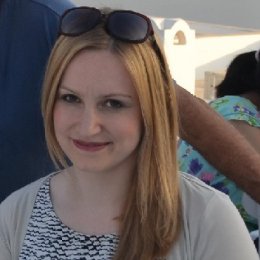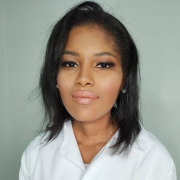- How did you become interested in the field of Hypertension?
My passion for hypertension research was ignited when I completed a research lab mini-project during the final year of my Bachelor of Biomedical Science degree at Monash University. The lab I joined (and where I also went on to complete my Honours year and PhD) was led by Dr. Wayne Comper in the Department of Biochemistry and Molecular Biology. The major focus of our group was on improving our understanding of the renal handling of albumin in health and cardiovascular disease. My own work, in particular, looked into uncovering the underlying mechanisms that link the development of albuminuria to hypertension and associated disease. From here, I was determined and excited to pursue a career in hypertension research and joined Professor Kate Denton in the Department of Physiology as a Post-doctoral Research Fellow.
- Describe your research & the program/lab (info of your supervisor) that you are in?
In 2009, I joined the Cardiovascular and Renal Research Group (under the mentorship of Professor Kate Denton) in the Department of Physiology at Monash University in Melbourne, Australia. Our research team pursue a wide range of research projects aimed at better understanding the basic physiology and major endocrine functions of the kidney and heart, and clinical conditions associated with abnormal renal and cardiac function, including hypertension. My own research largely focuses on the role of the renin-angiotensin system in the regulation of arterial pressure via its effects on cardiovascular and kidney function. In particular, I am interested in how sex differences in the renin-angiotensin system contribute to sexual dimorphism in the regulation of arterial pressure and the development and progression of hypertension between men and women.
- What do you consider to be your substantial scientific contribution so far (provide Pubmed PMID if possible)?
I consider my most recent publication in Hypertension to be my most substantial scientific contribution to date. In this study, I investigated the sex-specific effects of acute pharmacological stimulation of the angiotensin type 2 receptor (AT2R), a major component of the ‘protective’ arm of the renin-angiotensin system that elicits arterial-pressure lowering effects, in male and female hypertensive rats. I showed that therapeutic AT2R stimulation improves renal function in female but not male hypertensive rats. Thus, providing further support for further investigations into the therapeutic potential of chronic AT2R stimulation as a novel therapeutic approach to treat hypertension, at least in females.
Hilliard LM, Chow CLE, Mirabito KM, Steckelings UM, Unger T, Widdop RE, Denton KM. Angiotensin type 2 receptor stimulation improves renal function in female, but not male, spontaneously hypertensive rats. Hypertension, doi: 10.1161/HYPERTENSIONAHA.113.02809. PMID: 24842923
- Describe your experience in reviewing manuscript for peer-reviewed journals.
I review manuscripts for a number of peer-reviewed journals in the hypertension research field including Hypertension, Clinical and Experimental Pharmacology and Physiology, Journal of Hypertension, Hypertension Research and Clinical Science. I find this a rewarding experience and responsibility – both intellectually stimulating and undoubtedly important for promoting quality and excellence within our research field.
- What is your favourite manuscript from a lab other than your own (provide Pubmed PMID if possible)?
At the moment my favourite manuscript is a review article that was recently published in American Journal of Physiology – Regulatory, Integrative and Comparative Physiology by Kathryn Sandberg and colleagues. The paper discusses the current debate surrounding the need (and possible/best approaches) to eliminate sex-bias in basic research. This follows the recent announcement that the NIH plans to actively address the underrepresentation of females in pre-clinical research.
Sandberg K, Verbalis JG, Yosten GL, Samson WK. Point/Counterpoint: Sex and basic science. A Title IX position. Am J Physiol Regul Integr Comp Physiol 2014. PMID: 24944252.
- What facilities are essential for your research?
Facilities that are most essential to my research include fully equipped laboratories for conscious and anesthetised studies in small animals (servo-controlled heating lamps, transonic flow meters, data capture systems), and telemetry recording rooms for arterial pressure recordings in conscious animals.
- Describe your unforgettable (proudest) moment in science, and the most challenging situation that you have had to overcome (lessons learnt) so far?
My proudest research moment so far would definitely be winning the International Society of Hypertension New Investigator Committee Oral Presentation Award at the Joint ESH-ISH meeting held in Athens, Greece in June 2014. It was such a privilege to be nominated for this prestigious award and present my research among so many young, talented early career investigators.
My most important lesson learned so far in medical research is to never give up – and to celebrate every ‘research success’ and milestone along the way no matter how big or small.
- At which conference did you first present? How was your experience?
The first conference I presented at was The Renin-Angiotensin System Club – New Horizons Conference held in Melbourne in 2010. I was awarded a Best Early Career Oral Presentation Award.
- How did you learn about ISH/NIN and its activities?
I first learned about the ISH/NIN in 2011 when I attended the Council of High Blood Pressure Research of the American Heart Association Scientific Sessions in Orlando, Florida. Here I took part in the inaugural ISH New Investigators Symposium hosted by the ISH new Investigator Committee.
- What are your future career plans?
My long-term career goal is to establish myself as an independent career researcher in the hypertension research field. I would like to build my own independent research program focused on improving the universal understanding of sexual dimorphism in blood pressure control, as well as the underlying mechanisms that contribute to sex differences in the development and progression of hypertension.
- What are your scientific goals? Advise for talented emerging scientists?
My major scientific goals are to continue to pursue a career in hypertension research and, as mentioned above, hopefully one day in the near future develop my own independent research program and laboratory.
My main advice for talented emerging scientists is to: (1) Take the opportunity when available to attend as many national/international conferences as you can – to me this is the most ideal platform for networking and establishing new collaborative connections, as well as promoting your own latest research. (2) Do your best to maintain a healthy balance between you work and family life.





















